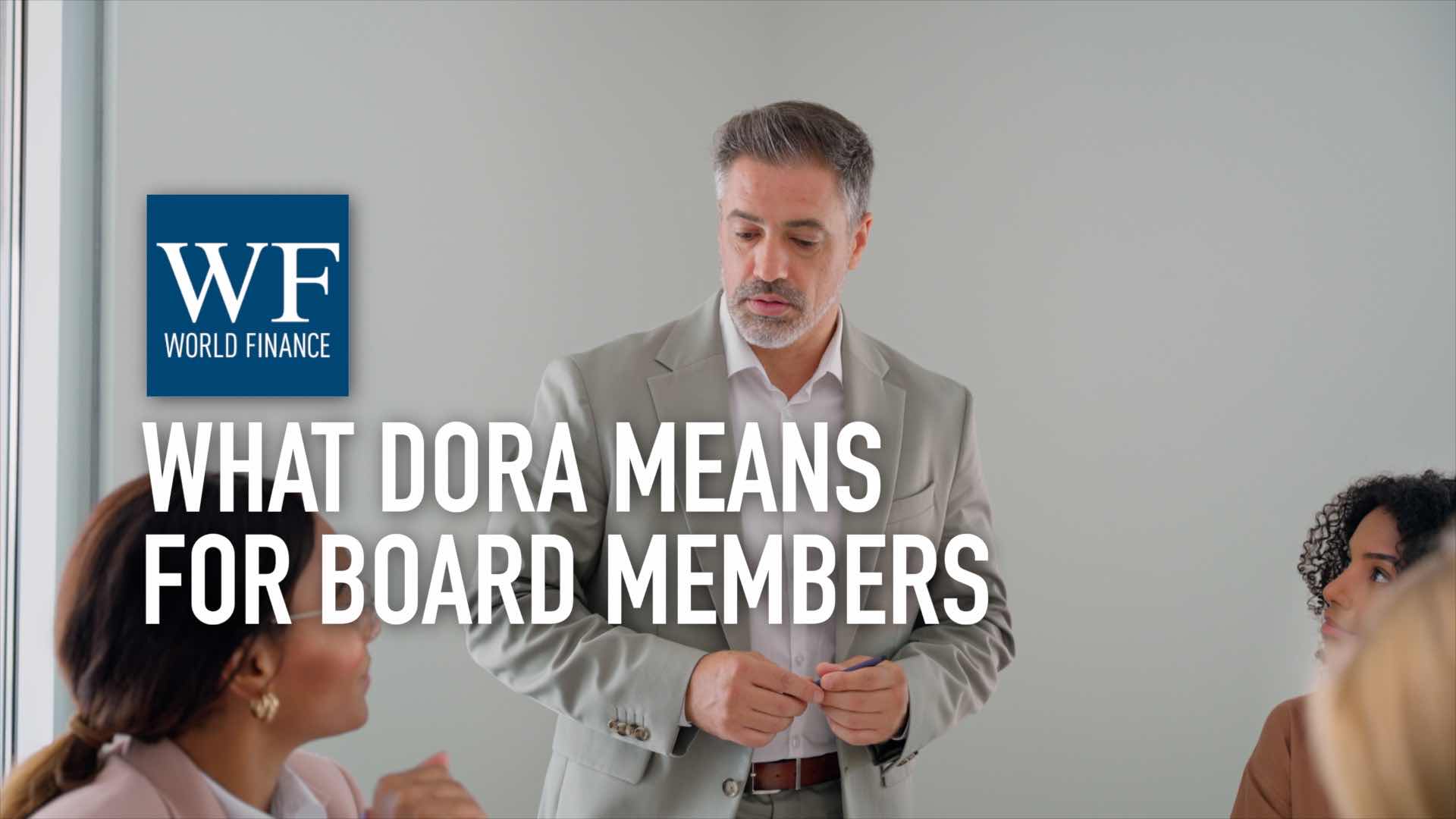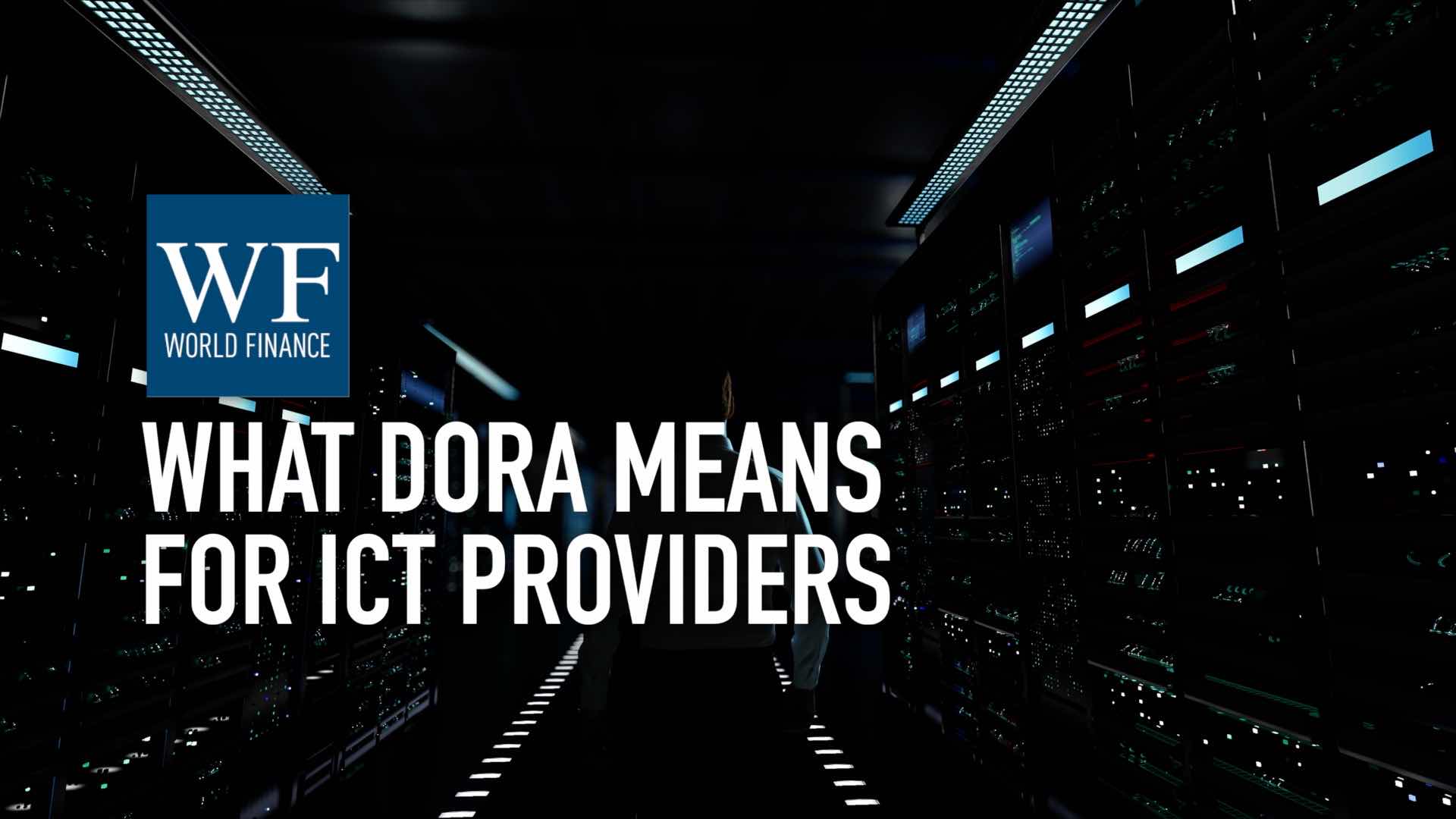“Without financial inclusion, you can’t create a middle class” – David Schwartz at Felaban 2014 | Video
From the conference floor of Felaban 2014 in Medellin, Colombia, World Finance speaks to FIBA's David Schwartz on the themes of the conference and the future for FELABAN as it turns 50 next year
Related:
Transcript
The power-players have gathered for yet another year at Felaban. With nearly 2,000 representatives from financial institutions from markets around the world present, what are the key themes being explored by developed and developing nations? David Schwartz, CEO of FELABAN’s key partner, the Florida International Banker’s Association, tells all.
The power players have gathered for yet another year at Feleban. Here to tell us about some of the highs and lows of the event – David Schwartz.
World Finance: David, I know thousands of people who are attending this year – bankers from all over the world. Tell me, what were some of the big takeaways for you?
David Schwartz: Well you’re right – what we’ve estimated so far is about 1800 participants from 50 countries around the world. So as you can see this is a central meeting point for bankers from around the globe, to do business in Latin America and I think that’s what underlines the importance of this event.
World Finance: Tell me – how central of a role does this particular event have for the banking sector in Latin America?
David Schwartz: Well for Latin America it’s of the up most importance because what your looking at are banks coming from around the world – Europe, Asia, the US – seeking to advance lines of credit and offer financing here for everything from trade finance to infrastructure projects. And this is what helps boost the economies in these countries, which have been struggling of late.
World Finance: So do you think there was any really big takeaway in terms of what significant steps need to be put in place? For instance from The Finance Minister of Columbia, who was speaking earlier.
David Schwartz: Well I think we heard two common themes. One was of course financial inclusion, which is very important in some of the poorer countries in Latin America, and without that you don’t create a middle-class. I think that was a very important note from the speech of the Minister.
The second was technology, because technology and those advancements will really help bring those people into the financial services industry. Not only to help them bank but also to help them create their own businesses – many of these people have ideas and they want to create them, but they don’t have the means to do it. And this will help them.
World Finance: Next year – Miami. What can we expect?
David Schwartz: Well next year we will be celebrating 50 years of Feleban, so I’m not going to release any secrets or unveil any secrets – but will prepare something very special to celebrate the 50th anniversary.
World Finance: Now reflecting on the Americas in general – as much as emerging markets need some of the developed economies, the developed economies need the emerging markets. Is that going to be a theme that runs through next years conference?
David Schwartz: That will always be a theme in every conference because while we talk about the developed nations, really today it’s only the US and maybe the UK, that have come out of the crisis with any type of future hope, in that the economies will remain stable. We see that Europe is struggling still. Japan today officially announced that they have entered into a recession. So we need trading partners, and Latin America has always been the top-trading partner for the US.
World Finance: Why do you keep going back to Miami – what is it about that community that really reflects the ambitions of the banking sector?
David Schwartz: Well we like to say that Miami is the gateway to Latin America, and in some peoples minds Miami is the capital of Latin America. Don’t say that to the Latin American’s because it could be offensive, but culturally and geographically we are the meeting point.
We are able to have events like Feleban in Miami, speak to them in their own language – people of their own culture are organising these events. In Miami of course it’s sunny all year round – we have the ocean. And most importantly for a lot of them, we have shopping.
World Finance: Ok now one last point – I know FIBA organises quite a few events around the banking sector, the anti-money laundering conference that’s going to be held is personally a lot of interest for me. Can you tell me, what can we expect from it?
David Schwartz: Well this has been a challenging year for the banks when it comes to regulation and compliance. We will be holding the 15th annual anti-money laundering conference on March 5th and 6th.
We have a lot of regulators that have reached out to us, and policy makers, they want to come and discuss the issues at the conference. And that’s always been the most important aspect of it. We have an open, free flowing dialogue between the industry, policy makers and regulators.
And given the current challenges, I think you’ve seen a lot of the rather substantial fines that have been handed out to banks for failures with their money laundering programmes – this is going to be a very important event, a very key event this year. Because we have regulators and policy makers issuing guidance saying banks really need to work better – and you have the banks and the industry of course saying we’re over regulated.
So we’re going to have a very interesting and perhaps controversial discussion on some of the main issues.
World Finance: David Schwartz, thank you so much for joining me today.
David Schwartz: And thank you.

 What the Digital Operational Resilience Act means for board members and CEOs
What the Digital Operational Resilience Act means for board members and CEOs What the Digital Operational Resilience Act means for third party ICT providers
What the Digital Operational Resilience Act means for third party ICT providers
